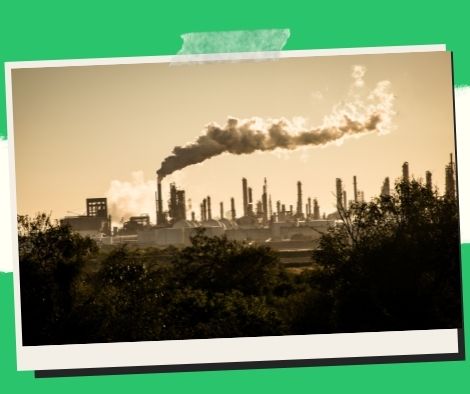
PH reaffirms the need for immediate global climate action.
The Philippines has echoed the plea of developing countries for immediate action and outcomes on affluent countries’ climate change promises ahead of the United Nations Climate Change Conference of the Parties (COP26), which began here on Sunday.
Prior to the COP26 meeting, Department of Finance (DOF) Secretary Carlos Dominguez III and Department of Energy (DOE) Undersecretary Felix William Fuentebella emphasized the need to speed up the mobilization and provision of funds to assist the world’s most climate-vulnerable countries in climate adaptation and mitigation in separate international fora.
Dominguez, who is leading the Philippine delegation to COP26, first made the call at the Asian Infrastructure Investment Bank’s (AIIB) 2021 Annual Meeting, where he urged Western economies, which are largely responsible for the majority of GHG emissions, to take immediate steps to reduce their carbon footprints.
He also stressed the need for major economies to follow through on their pledges to provide the necessary funds for climate-vulnerable countries to transition to a clean energy future.
Dominguez stated that he expected attendees at this year’s climate change conference to stop talking and start acting right away.
“We want to see a clear shift of the Paris Agreement from being a platform for discussion to a springboard for meaningful action” from the COP26 summit, he stated last October 27 at the AIIB annual meeting.
On October 29, Fuentebella reiterated the Philippines’ position at a meeting of the Group of 77 (G-77) and China, citing the need for openness and accountability in the use of funds for climate financing.
“We said that every dollar or peso spent, as well as its impact toward our common goal, should be quantified and disclosed to the people of the receiving and participating countries for full transparency,” he said.
The G-77 is the United Nations’ largest intergovernmental organization of developing countries (UN).
This Group supports the interests of developing countries by articulating and promoting their common economic interests and strengthening their combined negotiating capacity on all major UN topics.
Despite Western nations’ failure to deliver their finance pledges to climate-vulnerable countries, Dominguez and Fuentebella claimed during the AIIB and G-77 and China summits that the Philippines has moved quickly to implement its climate mitigation and adaptation programs.
The Philippines, one of the world’s most climate-vulnerable countries, generates only 0.3 percent of total GHG emissions, but as part of its Nationally Determined Contribution (NDC) to the Paris Agreement, has pledged to reduce emissions by 75 percent over the next decade.
Fuentebella underlined the need of countries to be administratively prepared in raising the climate change fund at the G-77 and China summit, claiming that this is why Dominguez is leading the Philippine team.
Dominguez is leading the Philippine delegation at COP26, emphasizing the country’s genuine commitment to cooperation and mobilization of available resources to address the climate problem.
The finalization of rules to implement the 2015 Paris Agreement, in which all countries of the world pledged to step up efforts to try to limit global warming to 1.5°C above pre-industrial temperatures and enhance climate action financing, is one of the expected outcomes of COP26.
The three groups of signatories to the UN Framework Convention on Climate Change, which kicked off the annual Conference of the Parties (COP), are Annex I, Annex II, and developing countries.
Parties to Annex I pledge to reduce their emissions to 1990 levels and, if they are unable to do so, to purchase emission credits or invest in conservation.
Annex II parties must contribute financial resources to developing countries in order to help them reduce emissions and adapt to the negative effects of climate change.
They must also “take all reasonable actions” to encourage the development and transfer of environmentally friendly technologies to EIT Parties (economies in transition) and developing countries.
The Philippines agrees with the G77 and China in calling for more robust delivery of aid to developing countries.
According to Fuentebella, this support should emphasize the importance of concrete solutions such as transformative technologies in the form of tangible results or pilot programs that would achieve the goal of technology development and transfer, as well as capacity building, including strategic research, development, and demonstration.
Save/Share this story with QR CODE
Disclaimer
This article is for informational purposes only and does not constitute endorsement of any specific technologies or methodologies and financial advice or endorsement of any specific products or services.
 Need to get in touch?
Need to get in touch?

We appreciate your reading. 
1.) 

Your DONATION will be used to fund and maintain NEXTGENDAY.com
Subscribers in the Philippines can make donations to mobile number 0917 906 3081, thru GCash.
3.) 
4.) 
AFFILIATE PARTNERS

World Class Nutritional Supplements - Buy Highest Quality Products, Purest Most Healthy Ingredients, Direct to your Door! Up to 90% OFF.
Join LiveGood Today - A company created to satisfy the world's most demanding leaders and entrepreneurs, with the best compensation plan today.

 Business, Finance & Technology
Business, Finance & Technology

 Business Technology, Finance Technology & Information Technology
Business Technology, Finance Technology & Information Technology





